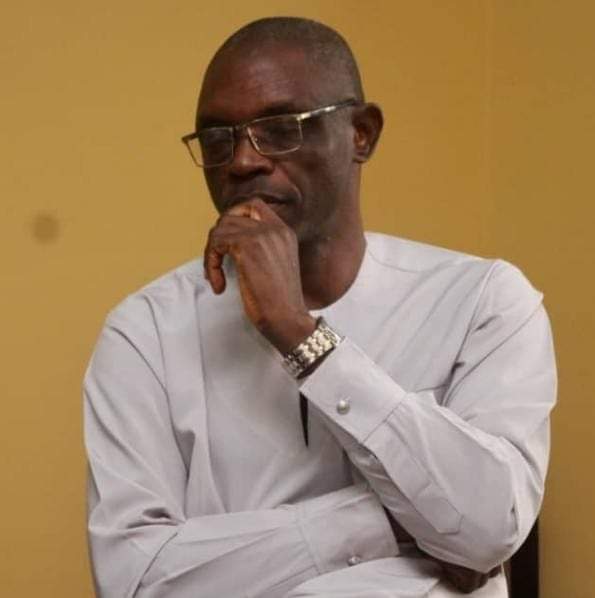Between Mike Adenuga and Prometheus
By Lasisi Olagunju
The Greek word ‘philos’ means ‘love’, and ‘anthropos’ means ‘man’ or ‘humanity.’ The Englishman came across those two words, combined them and came up with ‘philanthropy’ – ‘love of mankind.’ The Ancient Greek was a nation of great thinkers. World civilizations inherited from these great people rare knowledge preserved in myths, folktales and legends of heroes. They clothed their myths with assumptions and beliefs that have endured centuries of interrogations and reviews. One of those is their insistence that one of their titans, Prometheus, was the very first philanthropist.
And I ask how? ‘Prometheus’ as a Greek name means ‘Forethinker’. One writer says we should not be tired of celebrating him because “he loved us. He helped us. He defied the other gods and suffered for us.” To Timothy Wutrich, American Professor of Comparative Arts, Prometheus is “the polymath, creative genius, and philanthropist” who rebelled against Zeus to save humanity. What exactly is that thing he did?
The Greek in their myth say man was created naked and vulnerable in a hostile world of privileged beasts. But Prometheus, who was present during creation, took a deep look at the helpless creature, thought of what to do, fished out fire from where Zeus hid it and gifted it to Man. Classical Greek dramatist, Aeschylus (524-455 BC), in his ‘Prometheus Bound’ casts him as humanity’s “preserver” who gave us “all the arts and sciences as well as the means of survival.”
Read Also:
The immediate past president and chief executive officer of The Pew Charitable Trusts, Rebecca W. Rimel, on 28 April, 2001, addressed a joint meeting of the American Philosophical Society, the Royal Society and the British Academy on what she called the strategy of charity. At that proceeding, she addressed the Promethean fire philosophy. She explained ‘fire’ as that long-term solution that addressed the root of a problem: “The gift of fire,” Rimel explained, “transformed the world. Fire did not simply permit a few people to enjoy a hot meal and a warm shelter on the day it was given. It was a new tool that could be used forever to help humans make their often-hostile environment more accommodating…” She suggested that ‘fire’ could stand for education, for knowledge, skill. It could wear the dress of the master going the extra mile of teaching his protégés how to fish. She added that “philanthropy is not simply a kind attitude – it also implies a certain kind of approach” which we see in the myth of Prometheus. She proceeded to sit Prometheus with Thomas Jefferson and the American founding father’s profound belief that “a free nation could remain free only if its people were educated.” She alluded to Jefferson’s 1808 “ardent desire to see knowledge” in every man.
When Globacom chairman, Dr. Mike Adenuga Jr., turned 70 last year. I wrote a column and gave reasons why I did: his patriotism; his calls of commendation to me – and his kindness across all divides. Recently when Air Peace appeared buffeted by vicious tides of competition, I wrote and likened that company’s intervention to Globacom’s epochal entry into telecoms in Nigeria. I said before Globacom, there was exploitation from outsiders and Nigerians were made victims in their own country. The Nigerian telecoms subscriber was the pre-Prometheus man – naked and helpless. Then, Mike Adenuga’s company made its grand entry in August 2003 and its Promethean fire broke the chains. It was amazing how miserably the padlocks of brutal exploitation surrendered. My triumphant people would say they’d seized the enemy’s àgádágodo – the ones clothed with tiger skin and the ones hidden in hides of alligator (aláwo ekùn, àt’aláwo agílíntí).
Adenuga and his Globacom came with a string of firsts that have been mentioned repeatedly. Someone asked why those acts of patriotism are repeatedly told as stories, I answered that Nigerians of today who are thirty years and younger were too young in August 2003 to appreciate the battle won for them by Adenuga 21 years ago. They need to be told repeatedly that it happened. Read again Thomas Jefferson’s dictum which I quoted above: A free nation can only remain free if its people are educated. I add that education includes adequate knowledge of our history.
Today again, Adenuga celebrates his 71st birthday. I read many testimonies of his unannounced public-spiritedness last year when he clocked 70. I am reading (and savouring) refreshingly new ones this year. The stories of his activities are so much like the Promethean story: philanthropy that clothes the naked and addresses the roots of people’s poverty; charity that ennobles humanity and extends the frontiers of knowledge, friendship, love and kindness. The book of his benevolence includes chapters on scholarships and endowments in arts and science. Ask universities around; ask the Alliance Francais in Lagos. Ask the rescued widow in the backwaters of Yewa whose story changed forever. Ask me: I know (and I have heard) of people he dazed with kindness whom he did not give the opportunity to say “thank you.” As he does his Godly thing his quiet way, we will keep telling the world in our own loud words that he represents the best of humanity.
I wish him a happy birthday and very many more years of sweetness as his vintage wine grows in richness.
















